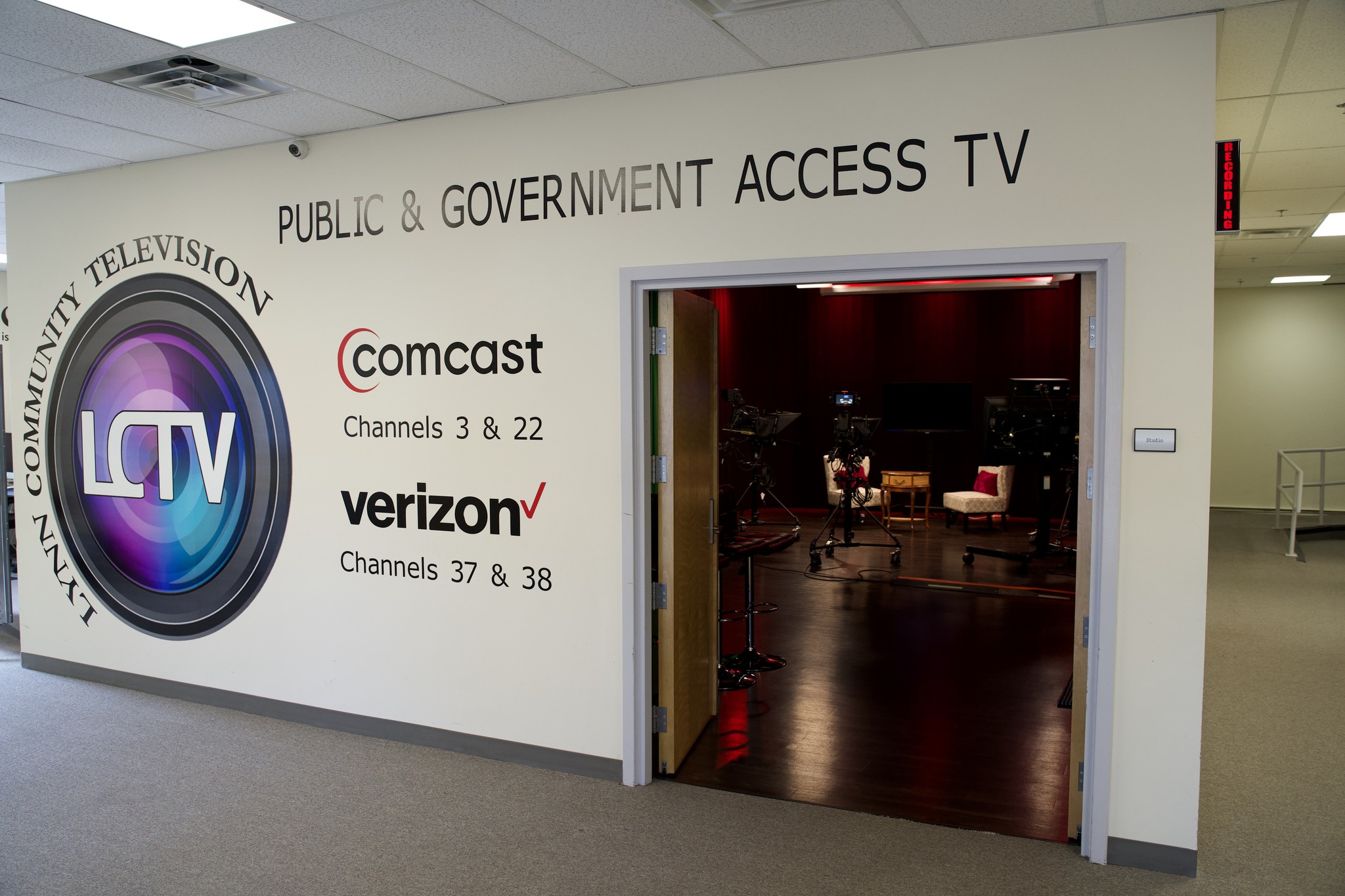Hey folks,
I have some unfortunate news to share in regards to changes at the FCC that will strip down and possibly eliminate access centers across the country.
On August 1st, the FCC Commissioners voted 3-2, along party lines, to accept changes that put in jeopardy the future of public access television, televised and streamed municipal meetings, and school media and technology programs.
Let’s look at how these services have been funded, and how broadband companies are now trying to wiggle their way out of agreements with local governments with the help of the Federal Communications Commission.
How would you feel about cities and towns allowing cable and broadband companies to use public land for free? After all, Comcast is not a charity, and neither is Verizon. As a taxpayer, I’d be angry if my city gave away use of public land to broadband companies for nothing in return. They are not really a public utility, though they tear up our streets as often as one. They should pay us for it. And, they have been.
A percentage of gross revenue, capped at 5%, currently goes to municipalities thanks to the Cable Communications Policy Act, in place since 1984. Under the act, each municipality, or sometimes groups of municipalities, negotiate a “Cable Franchise Agreement” with their local broadband providers.
Whether you watch NECN on your TV or Hulu on your Comcast or Verizon-provided WiFi, the data travels over the same infrastructure, so these franchise agreements still matter in a digital age. Lynn Community Television is able to broadcast and stream public meetings because of this agreement. Lynn Public Schools televises and streams football games because of this agreement. A public space is created on your channel lineup for local content because of this Cable Franchise agreement.
That’s about to change through a careful finagling of language in the cable act, allowing broadband services to count certain expenses against their franchise fees, which they themselves do not pay anyway.
Broadband providers pass the cost to consumers as a line item on the bill. It’s a very small amount per subscriber, and cable bills will not even be lowered under the new rules. They are simply reclassifying how they account for the franchise fees.
Using a deceptively-friendly term, in-kind services, broadband providers can now claim “deductions” from their 5%. Build a new school and need a connection? That’s deducted from the franchise fees. Infrastructure that allows broadcast of your City Council meetings needs repair? That’s a deduction from your franchise fees. It may not sound bad on the surface, but it puts cities and towns at risk of choosing between the infrastructure for broadcasting meetings or the money to have the staff and video equipment to broadcast meetings.
It is left up to broadband companies themselves to place a value on their in-kind deductions, without any over sight. The worst case scenario is that we can have our media access centers like LCTV, or we can have the lines in the ground that allow LCTV to operate. Each is useless without the other.
It was almost worse. In the August 1st ruling, the FCC stopped just short of deducting the value of provided Public, Educational and Government channel capacity, something they originally planned to include in the new rules. Had they done so, the “deduction” would have dried up all funding for access centers and school programs. And again, broadband companies would get to determine that channel capacity value, themselves, without oversight. We can expect that hammer to fall in the future, if we don’t act now.
This is a national issue because it’s the FCC, and a local issue because of who it impacts. I urge everyone to reach out to their representatives in Congress as well as state and local officials and school committees on this matter to block further rulings against the power of municipalities to negotiate with their broadband providers in exchange for use of public right of ways.
Let’s also fight this by growing our membership. Renew yours, bring in your neighbors and your neighborhood organizations and let’s continue to build community through local media.
—
Seth Albaum
Executive Director
If you have a news story that you would like to share, please contact us via email or call 781-780-9460.

